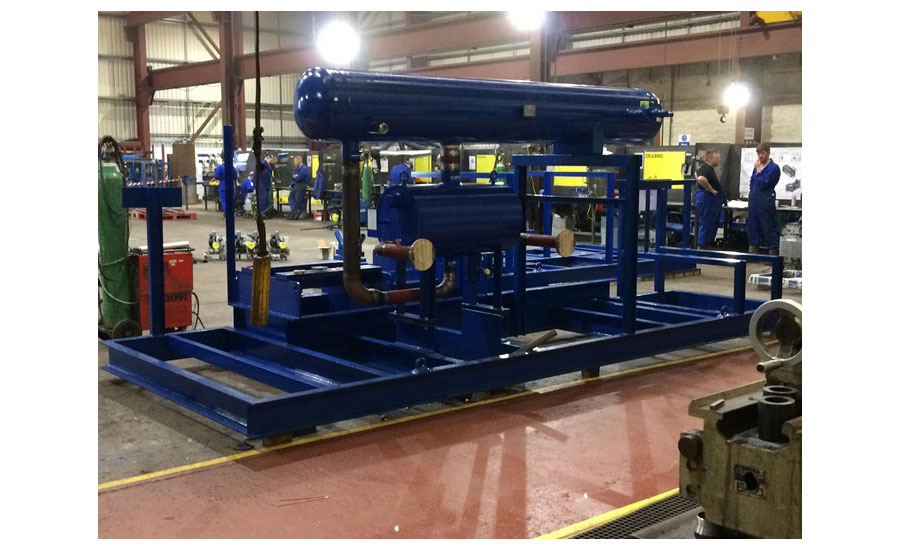An innovative large scale heat pump system from Star Renewable Energy and E.ON will work with a solar energy installation to supply E.ON’s community energy center in Cranbrook to the east of Exeter, with renewable heating and hot water.
The emissions-free, low carbon heating venture is claimed to be the first of its kind in the United Kingdom to merge large scale heat pumps and solar thermal panels with contributions from solar photovoltaic and dedicated heat storage provision in a large scale district heating network.
The scheme secured funding from DECC, one of nine schemes sharing a £6 million funding allocation and it is co-pioneered by energy company E.ON, the University of Exeter, and technology provider SK Solar. The aim of the project venture is to improve the performance of heat networks, demonstrating how the combined technologies can replace or work alongside the existing combined heat and power (CHP) district heating scheme to provide lower cost and significantly lower carbon heating and hot water.
This innovation will drastically lower the environmental impact of warming local homes, businesses, and buildings in Cranbrook and the surrounding area.
Dave Pearson, director of Star Renewable Energy, a business of Star Refrigeration, said, “The project is a new breed of heating solution and could offer Cranbrook carbon savings of up to 100 percent when compared to conventional gas boiler systems.”
The key innovation challenge for the project partners is the operation, control, and optimization of the dual technologies to supply one of the country’s largest new-build district heating systems.
Star will install a high-temperature 80°C heat pump that will draw heat from approximately 2,000 square meters of ground-mounted solar thermal panels. The solar farm will produce hot water at 55°C during the day, which will be boosted to 80°C overnight when electricity is cheapest to allow the system to meet peak morning demand. A network of ‘super-insulated’ underground pipes will eventually deliver the harvested heat to 3,500 new homes in Cranbrook, as well as 1.4 million square feet of Skypark industrial space, which is expected to provide over 6,500 new jobs.
Pearson said, “Smarter heating solutions can be a catalyst to more jobs and a better environment. This recalibration of our relationship with energy is about far more than ‘green.’ It is the triple pillars of sustainability: people, planet, and profit. The Renewable Heat Incentive support from DECC is bringing this opportunity to the masses and the support for big heat pump must continue.”
Tim Rook, head of design for community energy at E.ON (former sustainability manager at Space Engineering) added, “It is fantastic to see the government supporting innovative engineering that has the potential to change the low carbon heat landscape so dramatically. By combining these technologies and an advanced control system to select and manage multiple energy sources we have the potential to create a viable heat source that is truly renewable and independent of a fuel source. In years to come the integrated technology we are pioneering here could be replicated in existing and new-build district heating schemes across the country and would make a significant contribution to easing the impact on the environment which comes from domestic heating.”
Content for the European Spotlight is provided courtesy of Refrigeration and Air Conditioning Magazine, London. For more information, visit www.racplus.com.
Publication date: 9/7/2015
Want more HVAC industry news and information? Join The NEWS on Facebook, Twitter, and LinkedIn today!










